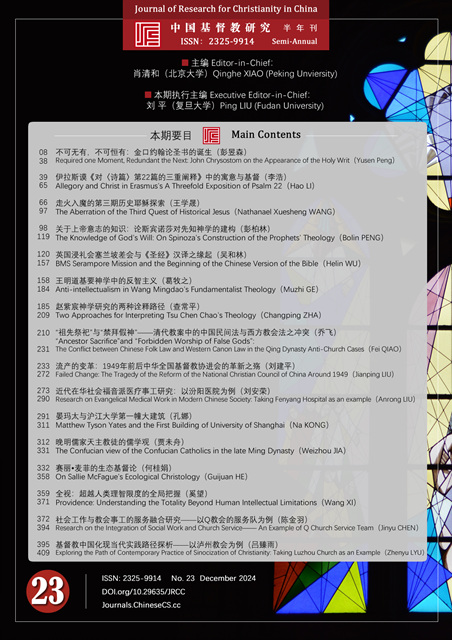Abstract
The establishment of the People's Republic of China in October 1949 opened a new page in the history of the development of Christianity in China. As the most important Christian coordination and alliance organization in China, the National Christian Council of China is keenly aware that the Chinese church requires a living space in the new era, and must deeply reflect on its past work, and then make some changes in response to the times. However, the various adjustments made by the National Christian Council of China, whether it was external demands for delegation of power from the British and American missions, or internal preparations for the National Christian Conference and the 14th Annual Conference, were all based on purely religious positions. All of these were far from the expectations of the Chinese Communist Party on the core issue of the relationship between the Chinese church and the Western world, to the extent that CCP had to "start anew" and choose new forces within the Chinese church to lead this change. This led to the Chinese Christian Three Self Reform Movement initiated by Y. T. Wu, Liu Liangmo, Cora Deng, and others, which influenced the future direction of the Chinese church.

This work is licensed under a Creative Commons Attribution-NonCommercial-NoDerivatives 4.0 International License.
Copyright (c) 2024 Journal of Research for Christianity in China (JRCC)

